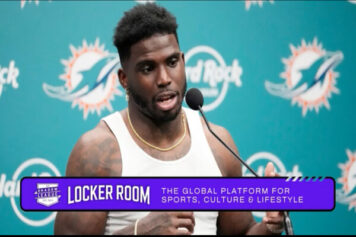Even though Real Sociedad fans more than did their part in the first half of the Feb. 9 Basque Country derby in chilly San Sabastian, Spain — with their chorus of songs, chants, beating drums, waving flags and thunderous boos of their rivals — the first 45 minutes of this much-anticipated game was … boring, even by Spanish futbol standards.
That is, of course, until two black players — one from each side — simultaneously got subbed on, changing the complexion of a game that was lacking in flavor.
“You could feel the game change immediately after [Sociedad forward] Alexander Isak and [Athletic Bilbao striker Iñaki] Williams came on,” said Mikkel Lundby of Denmark-based Ritzau News Agency, who was on hand for the match at Anoeta Stadium. “Almost in an instant, you felt the region come together.”
Isak, 20, was in great form — coming off a two-goal performance in Real’s stunning 4-3 road win against Real Madrid in the quarters of the Copa del Rey on Feb. 6. Called the “new Zlatan” (like Ibrahimović, Isak is a tall-and-rangy Swedish international who has a knack for finding the back of the net), Real Sociedad locked in the youngest-ever player to score for Sweden (born to Eritrean parents) to a five-year deal last July.
https://youtu.be/CsTHz1JtOIo
Athletic Bilbao’s Williams, a central part of the club’s senior side since the 2014-15 season — having played a part in every one of their La Liga games since the end of the 2015-16 season — has 13 goals in 26 matches this season.
https://youtu.be/ptUII8s1i-g
Both men are targets — they’re forwards, after all — paid to score goals; and, targets, as black players who are focal points of their teams in one of the world’s top European leagues.
Before deciding to pay homage to the club that’s molded him his entire playing career, the 25-year-old Williams who was born to Ghanian parents rebuffed interest from the likes of Manchester United to sign a nine-year contract that should have him finish out his career in Basque country.
Get used to their faces; both players will be front and center for their respective squads for years to come. There’s no hiding them; their talents speak volumes.
Sunday’s first goal would be scored 10 minutes after both men came on — a 65th-minute tally by Cristian Portu (that was assisted by Isak); six minutes later, Williams would counter, bagging an equalizing goal in the 71st minute. And just 12 minutes later, Isak would get the last laugh — finding goal in the 83rd minute, a tally that would propel the home team to their fourth win in the last five Basque Country derbies.

Athleticism and being one of a few black faces on their teams aren’t the only reason Isak and Williams stand out; racist fans see them, too — making them targets of another kind. (Williams himself suffered racist abuse from a rival set of Espanyol fans during a La Liga league match, a 1-1 draw at Espanyol, on Jan. 25.)
Said WIlliams after the match: “I leave here feeling sad because of the draw and because I’ve been subjected to racist insults. It’s something that no black player, or any player, wants to hear. It’s completely out of place.”
The list of black players who’ve suffered Williams’ fate is growing faster than the sport would like. “Say No to Racism” pre-game step-and-repeats was a necessary first step — a needed awareness play. But until governing bodies issue stiff across-the-board mandates to clubs to police themselves, issuing one-and-done lifetime bans to guilty parties, and until this issue becomes everybody’s problem, “the beautiful game” might need a new tagline.
Fans want to see more of the likes of Williams and Isak — knowing that they’re playing freely, without the weight of racism slowing their runs; and, they’re worthy to be seen too. Perhaps their respective teams might come to America as part of Relevent Sport’s growing International Champions Cup preseason series down the road.
Until then, fans — here and abroad — will have to watch their growth from afar, while hoping that the only targeted plays they suffer involve a ball played to their feet.



